














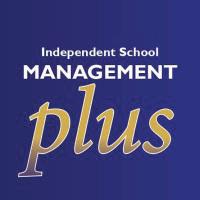

























(for 7 to 19 year olds)
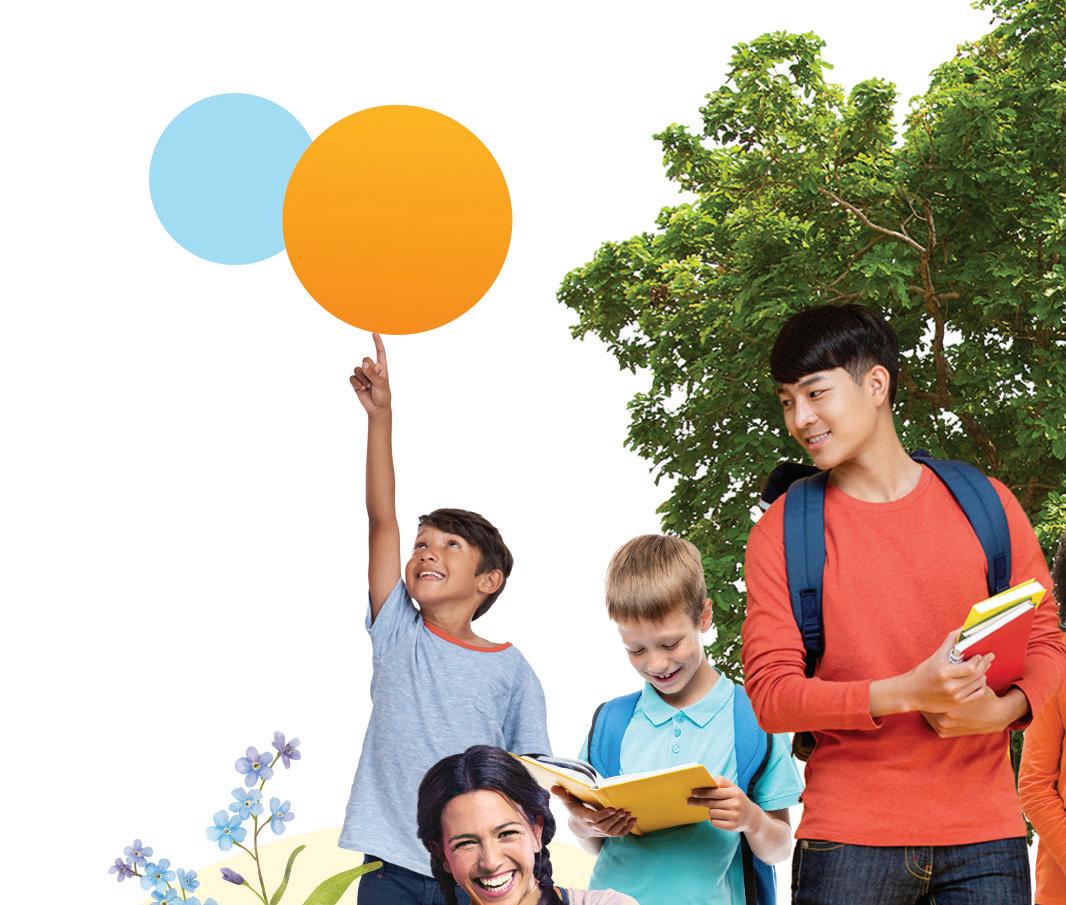
Help your students feel good, do well and flourish. Grounded in worldleading research and delivered on an easy-to-use digital platform, it supports you in helping students aged 7 to 19 feel their best.
From a whole-school view right down to individual students, the Cambridge Wellbeing Check gives you a clear picture of wellbeing. Explorative helps you understand how students feel in your school


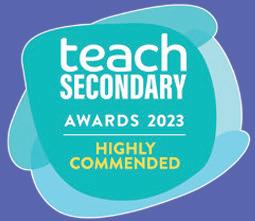




EDITORS
Mary
Jeff Thompson editor@is-mag.com www.is-mag.com
MANAGING
Steve Spriggs steve@williamclarence.com
DESIGN &
Fellows Media Ltd
The Gallery, Southam Lane, Cheltenham GL52 3PB 01242 259241
bryony.morris@ fellowsmedia.com
ADVERTISING
Emily
emily.hayes@ fellowsmedia.com 01242 259249



































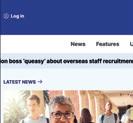


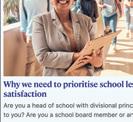






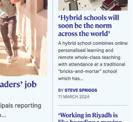
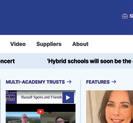




After an impressive career in the UK, Ann Haydon has spent the last seven years embracing life and leadership at Harrow International School in Hong Kong
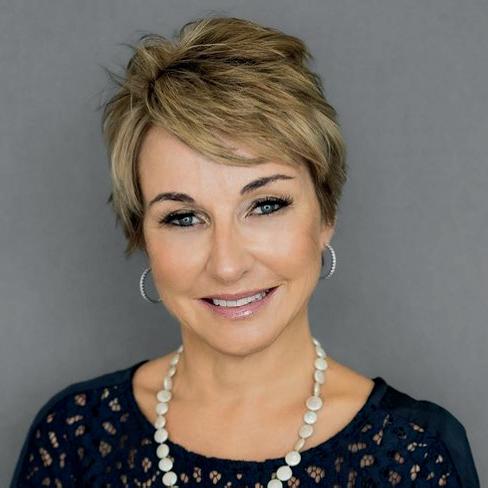
As a young university graduate, Ann Haydon was offered a job as an accountant at the London office of what is now KPMG. It was an exciting opportunity, with the potential for international travel.
Her parents ran a family haulage business, so juggling accounts was in her blood and her mother pushed her to take it.
But Ann had other ideas. Having completed a degree in economics and geography then a PGCE, she decided that the humble career of teaching might be where her true passion lay.
And indeed it was. Despite feeling “lukewarm” about the training, she says the moment she stepped in the classroom for real she “just loved it” and felt she had “found her niche”.
And, as it turns out, her career has been just as exciting and glamorous as any highflying accountant – probably far more.
During a career including over a decade at the Girls’ Day School Trust, a deputy headship at Guildford High School and a headship at Surbiton High School, she has been delighted by the opportunities available to her.
“I’ve had an amazing career. I’ve travelled the world, I’ve met Olympic sports men and women, I’ve met famous writers and actors, royalty, and had an incredible time going on numerous school trips all over the world.”
There has also of course been the joy of “seeing young people grow and develop and flourish and turn into amazing young people,” she says.
And she has gained national recognition for her work: In 2013 she was awarded a distinction in the Pearson UK Headteacher of the Year Awards for work in leadership, governance, teaching and learning and marketing. In 2012, Haydon and her senior leadership team at Surbiton High won the Independent Schools Association ‘Outstanding Senior Leadership Team of the Year’ award.
“I’m also very humbled by a lot of the people with whom I’ve been honoured to work, Some brilliant, dedicated staff. I feel very, very fortunate to have met such inspirational people,” she says.
She also loves the business side of running a school: “I was brought up with management accounts lying around on the kitchen table and my parents after dinner talking about how to market the company and so on,” she says.
She has now been the head of Harrow International Hong Kong for the past seven years and was recently made an MBE in the New Year honours list. This, she says, was “completely unexpected” and left her “speechless”.
“It was such a surprise but a wonderful one,” she says, acknowledging that a headteacher does “nothing on their own”.
She is more passionate than ever about Hong Kong, where she lives with her husband and 17-year-old son and their chocolate labrador, Chico.
She says: “Despite what people hear and read in the media, it’s an amazing place to live and work and learn. It truly is where West and East meet. It’s an exciting, vibrant city. There are so many different things to do and you can jump on a plane and be in parts of Asia in a very short period of time so travel is very, very easy.”
But her main focus in termtime is of course running the 3 to 18 school, which was founded in 2012 and now has just over 1600 pupils and 400 staff. Located on the site of a former army barracks in the New Territories, and the only British boarding and day school in the jurisdiction, it’s a big ship to sail.
Keeping everyone involved happy and well-served is a daily challenge as cultures mix and demands and expectations vary, but the challenges are no greater than anywhere else, she says.
The school has 400 boarders – the school operates on a weekly boarding basis – and the vast majority go back to their parents at the weekend.
Haydon has been overseeing a number of projects at the school, and they are especially proud of their new Leonardo Da Vinci STEAM centre.
“It’s a coming together of the arts and the sciences,” she says.
In the pre-prep and prep school, STEAM is built into the curriculum. Older students can choose to do it as part of their super curricular options.
“We’ve also talked to employers, some of the big firms in banking in medicine, the education sector and the business world.
We’ve asked them about what sorts of people they want to recruit because we need to make sure that our young people have got the relevant skills and aptitudes to fulfil vacancies,” says Haydon.
The school does not like to use the term “soft skills” to describe traits such as leadership, the ability to be a team player and think critically.
“We call them that Harrow values, skills and attributes. They’re essential skills
“The MBE left me completely speechless.”
She says: “It’s been a great success and all our children from our 3-year-olds all the way through to our 18-year-olds are exposed to STEAM activities. I am a great believer in subjects not working in silos, encouraging true scholarship and collaboration and being innovative and entrepreneurial.”
The school celebrated the first anniversary of the centre’s opening with a conference with expert speakers and representatives from around 40 schools in region.
She is also proud of the school’s supercurricular programme – which runs during the normal school timetable. Pupils choose activities around different headings such as “academic stretch and challenge”, “wellbeing” or “leadership”. Pupils have been involved in activities as diverse as investment banking and dissection to studying Philip Larkin’s poetry.
These activities run alongside an optional co-curricular programme and a tapestry of visiting speakers, trips and visits under the banner of its enrichment programme “Harrow Horizons”.
The school is also undertaking a curriculum review this year, looking at the balance of subjects and the structure of the school day.
The school has consulted other top institutions in the world about how they organise their day, and canvassed the views of pupils, staff and parents.
people will need,” she says.
Staff wellbeing, family-friendly policies and CPD are also key to the school.
“We’ve got over half of our staff who are on accredited professional development courses,” Haydon says, “it is something which is very important to us.”
Staff can take various “pathways” such as “aspiring leaders”, “middle leaders” or a research based project pathway.
So Haydon, as they say, is understandably busy.
But what does she do to relax?
“When you are a head hobbies are on hold,” she says, “but I do like travelling.”
In the school holidays, she makes the most of the location to explore the whole region, visiting New Zealand, Australia, Vietnam, Cambodia, Thailand and Japan.
Her other interest – in good food and wine – can easily be indulged in Hong Kong itself.
“Believe me there are so many places to eat and drink,” she says with a twinkle in her eye.
Running one of the top schools in Asia and with a fresh MBE on her mantelpiece, Ann Haydon doesn’t regret turning down that career in accountancy. ◆

A new project is aiming to open parents’ and educators’ eyes about the threat of mobile phone use in children, writes Atif Hussain from New Cairo British International School
MMobile phones come in various shapes, sizes, and colours, catering to everyone’s interests and financial means. They have become the first thing we look at in the morning and the last
thing before we sleep. We carry them everywhere – in our pockets, bags, cars, and even into private spaces. We entrust them with so much of our lives, and they absorb our habits and routines. It’s almost
easy to mistake these sleek, colorful, portable devices as friends, and for some, even best friends.
However, the reality is far from this, and this perceived friend could, in fact, be a foe.
These small devices not only spy on you and hold information without your knowledge, but they also share and sell this information to others without your consent. They are designed to be

“Concentration levels decrease, anxiety levels rise, switching off becomes almost impossible.”
addictive and can have long-lasting effects, especially on young minds that are still developing.
It was within this context that I began my weekly “Parent Tech Bytes” sessions in school on the topic of “Your Phone is Not Your Friend”.
The idea originated from one of my LinkedIn connections who was discussing the concept of
mobile phones not being your friend in the context of student revision. Concurrently, the UK Department for Education had issued guidance about banning mobile phones in schools, prompting me to search for a catchy title for my weekly sessions on tech with parents.
As I delved into the research for the presentation, I became acutely aware of the real dangers and negative impact of
“For me, mobile phones act as experience blockers.”
mobile phones on the human mind, especially on young minds.
For me, mobile phones act as experience blockers. Once a child is given a phone, all other experiences become secondary. As a father, technologist and educator, I felt it my duty to share this with the school and wider community. My weekly Parent Tech Bytes sessions are warmly attended, where parents join in person, via live link to the presentation, or watch the recorded session later.
But “Your Phone Is Not Your Friend” was the most popular topic to date. For many parents, it underscored the dangers of the small device and its negative impact on students. Concentration levels decrease, anxiety levels rise, switching off becomes almost impossible, and focus and decision-making capabilities are reduced.
Currently, I am spearheading a project to raise awareness about this vital issue and provide support. On our website yourphoneisnotyourfriend.com you can find information about the project, the latest news items, and microlearning courses that help you become informed about the impact of mobile phones on young minds.
More helpful information and microlearning
courses are being created. I am also in the process of conducting a school-wide assessment of student technology use at our school, the first of its kind, in preparation for an open forum about the possibility of banning mobile phones at our school. The aim is to “create an environment that is calm, safe, and free from distraction, allowing all pupils, regardless of their background, to learn and thrive” (DfE, Feb2024).
Perhaps ironically, I am hopeful that by using the Internet and platforms such as LinkedIn we can initiate an honest discussion about the negative impact that quick access to social media and messaging services via the mobile phone can have on us and our future generations.
For more information, go to yourphoneisnotyour friend.com ◆
Artificial intelligence can help save time, increase inclusion and support teachers in their non-specialist subjects, writes Gemma Clark
Early in the summer holidays last year, I was still like a coiled spring, yet to unwind, and decided that I wanted to experiment with a generative artificial intelligence app to make my work life easier in the following year. Many hours later, I was still experimenting with the app, and the possibilities just kept coming.
Here’s the thing: I am not at all technologically inclined, but AI apps and websites are very user-friendly (and many are free). There are several ways that life can be make easier for teachers by AI in the primary classroom, so here are five examples:
1. Literacy lessons
As a primary teacher, I spend a lot of time creating tailored pieces of writing as examples to show the class. Whether it is a persuasive letter on the use of fireworks or a creative piece of Halloween-themed writing, children need to see an example of what one looks like, including specific elements of writing that you are looking for, such as effective use of sentence openers. This is something that can now be done effortlessly by asking an AI app to “create a persuasive piece of writing for eleven-year-olds arguing that schools should close for snow days”. You can even
ask the app to include specific examples of punctuation, connectives, or openers that you are focusing on for the current piece of learning.
2. Maths and differentiation
We all know that when teaching maths, providing worded problems is a good way to challenge children and deepen their learning. However, thinking up these problems is another time-consuming job. With a simple AI app, this can be done in seconds using a simple prompt such as “give me rugby-themed multiplication problems, multiplying three-digit numbers

by one number and provide the answers”. Of course, you could also simply ask the app to give you, for example: “Eight maths questions, threedigit numbers multiplied by a single digit (with answers provided)”. You then have questions for your main cohort. You could then go on to prompt “give me Disney-themed worded problems using the above” and you will be provided with fun questions about mermaids and seashells or lion cubs and zebras.
3. Lighten the mental load
Another fantastic way to use AI is for proofreading and checking your grammar. As a teacher, there is nothing worse than a typo ending up in your

4. Plugging the gaps
As primary teachers, we are expected to be experts in all parts of the curriculum, but few of us could claim to be experts in every subject. AI can be very useful in
“We all know that when teaching maths, providing worded problems is a good way to challenge children.”
materials, such as the class newsletter. You can now copy the newsletter into an AI app and ask it to “check spelling and grammar, ensuring British English/American English spelling and conventions”. You can even get AI to help you draft class letters with simple prompts e.g. “write a letter to parents politely asking them to be aware that children in the class are in a WhatsApp group and it is causing some upset and falling out” and AI will generate a professional letter which you can tweak as needed.
helping you plan lessons where you might not be as confident or experienced, like science, sport, art, music or technology. For example, you can ask an AI app to “plan me six tennis lessons for eight-year-olds” (giving an approximate age works well with AI apps). AI will then plan six lessons including ideas for warm-up games. If you are still unsure, you can give further prompts such as “how can I explain the basic rules of tennis to children”.
5. Inclusive practice
AI can help create inclusive classrooms. You can ask an app to “recommend
children’s books that build racial literacy” or “recommend a class novel for tenyear-olds with a disabled protagonist”. AI can also help in practical ways, such as translating texts into other languages for displays and classroom tasks, or be used to create very personalized visual timetables. For example, instead of a cookie-cutter image of a house for “home time”, you could easily have an app create an image of a high-rise flat to more accurately represent the kind of house that a particular child lives in.
Like the internet, AI will have its problems, but it also has a lot of potential, and I believe it is in our best interest to embrace it and learn how to use it to our advantage.
Gemma Clark’s new book Artificial Intelligence in the Primary Classroom (Crown House Publishing, 2024) is out now. ◆
takes to the road to consider the bends ahead
This particular article comes from two places – a casual pub conversation and an (almost) perfect motorbike ride.
The pub conversation centred around the tension between the day-to-day business of schools and the vision for an organisation – how can you keep these two things in balance in your head simultaneously without one, or the other, dominating?
The bike ride was just one of those which happens on a perfect afternoon, with smooth roads, no traffic and the sense of liberation I always feel when it all comes together just so.
In my post-ride afterglow, I got thinking about the pub conversation and how I manage to pull off the aforementioned trick. I came to the conclusion that riding a bike, and leadership, are not as far removed as one might think.
Consider it this way: your school is the machinery, a motorbike, in this case. The road you’re on is the timeline between where you are now, and the future.
The day to day of school life is the machine running. You maintain it, check the tyre pressures and oil, make sure you have enough fuel for the journey... but you don’t spend the entire journey thinking about whether the spark plugs are firing correctly or if the spindle holding the wheel on is working loose.You’re a responsible rider and you check these things regularly so that you don’t have to worry about them all the time.You’re listening to the engine, of course, when you are riding.You are vigilant for a change in note which suggests something is amiss. It isn’t, however, your main focus.

In order to get you, and the bike, safely and successfully from A to B with all your parts intact, you need to be spending your time reading the road – and looking a long way out in front. If you do this, you can prepare for the tight bend (another change in education policy) or the oil spill which might cause a skid (that staffing issue which has been brewing for a while). You might even spot the juggernaut about to pull out of a side road and flatten you. You are reactive, but in a planned way – you have a strategy for dealing with these things because you’re looking out for them.
If, when riding, you’re focusing too much on the engine, you miss the warning signs of the hazard up ahead. At best you panic and overcompensate, leaving you shaken and a bit unnerved about your capabilities as a rider. At worst, you crash. By looking out ahead, not only do you get to where you want to be, but you can also enjoy the journey.
This analogy doesn’t work with car driving. In a car, drivers are often distracted they fiddle with the radio, drink coffee, have heated conversations, text, even. On a bike, when riding you are completely in the moment – you can’t afford not to be. Leadership works best when you’re in the moment too.
Why else should leadership be like biking? Next time you’re out, watch bikers as they meet one another on the road. There’s often an almost imperceptible nod, which is just a quick “hi” or “I see you” to one another. We’re in it together. We also head out on the road together, sharing experiences and journeys. School leaders should do these things too. Biking (and school leadership) is often a solo enterprise, but it doesn’t have to be lonely.
All this makes me think of the phrase “Slow in, fast out”, a saying from the late, great Mike Hailwood. “Mike the Bike” won 12 TT races by the age of 27, setting a record as the first person to win three times in three different classes in one TT week at the age of 21.
“Slow in, fast out” describes how he approached a corner. You pick your line, check your speed, deal with it smoothly and move on faster from the bend because you’ve come out in the right spot. You don’t rush into the bend headlong and wrestle the bike heroically round, leaving yourself exhausted and in the wrong place for the next part of the trip, or you and the bike in a ditch.
That’s not a bad analogy for school leaders to follow, either in the early days of a new post or for any major change you might be considering. Slow in, fast out wins races. ◆


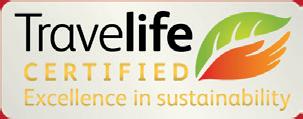
Keep up to date and get involved:
• latest news, regular features and opinion • monthly newsletter and jobs to your inbox • contribute your own ideas and opinion • join our webinars and round-table discussions.
We are the leading opinion platform for the successful running of a modern independent school. We are always keen to hear about the issues that matter to you most, so get in touch to have your school’s voice heard. editor@schoolmanagementplus.com

@SchoolManagementPlus

@SchoolAdmissionsPlus

@ISM_Plus

@schoolmanagementplus5799

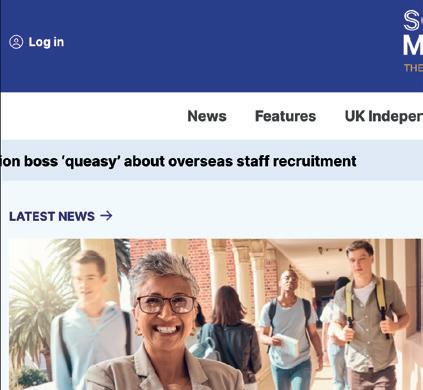
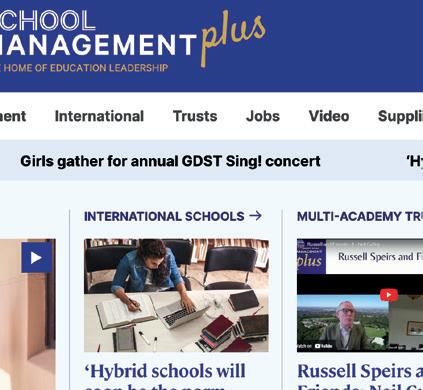
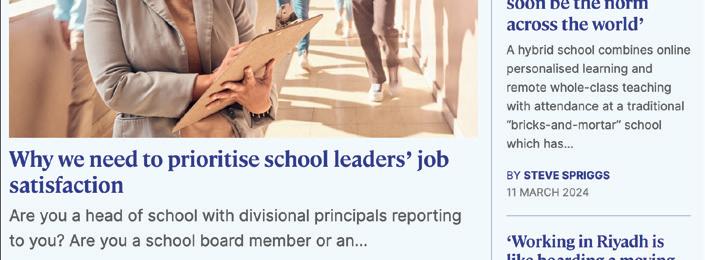

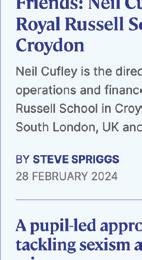
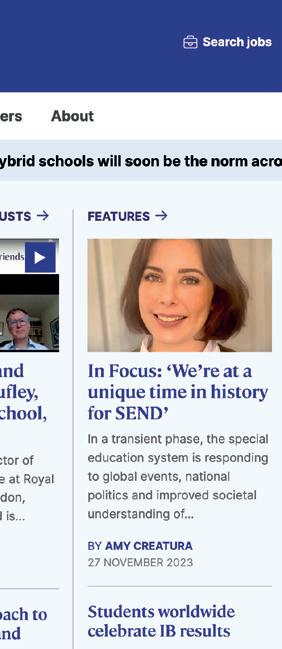


British international schools have the enduring magic of Harry Potter to thank for their increasing popularity across the globe, writes Simon Probert from Harrow International
In Harry Potter and the Philosopher’s Stone, J K Rowling writes of the first sight of Hogwarts as a castle “perched atop a high mountain on the other side, its windows sparkling in the starry sky, a vast school with many turrets and towers”.
This is a sight which increasingly is now found not only amidst the tranquil rolling fields of rural Britain, but across the globe, from Lagos, to Shanghai, from Dubai, to Jakarta (and all sorts of places in between).
In turn, Harry Potter has come to epitomize the values and community which underpin the ethos of British independent schools. As Dominic Sandbrook writes in The Great British Dream Factory, “By promoting the idea that boarding schools were fun, Rowling’s books have probably done more for boarding than anything else we could have imagined”.
More generally as Daniel Radcliffe put it: “It’s kind of impossible to understand the scale of what Harry Potter means to people”. The “Harry Potter effect” has come to refer to the wide-ranging impact and influence of the Harry Potter series on literature, popular culture, and society as a whole.
The rise of the British independent sector outside of the UK has been similarly
rapid and wide-ranging in scale, from when Harrow opened the first overseas branch of a British independent school at Bangkok in 1998, to the present day when there are 75 branches of British independent schools in China alone.
The latest census from the Independent Schools Council finds that its schools now have 129 campuses overseas, educating over 93,257 pupils. This is an increase from 107 campuses and over 71,500 pupils in 2023.
So rapid has the rise been that the British independent sector is increasingly dominating the field of international (and for that matter premium private) education globally. New markets include a rapidly growing sector in India and Indonesia, but new campuses are also appearing in North America and Europe. In turn, definitions around what constitutes an international education, and specifically types of school, need a rethink. Mary Hayden at the University of Bath contrasts long-standing schools set up for expat students or with a specific ideological underpinning with “nontraditional” international schools teaching students from local backgrounds.
The latter, set up for the children of the so-called global middle class, represent the main demographic of the fastgrowing market in international education. According to ISC Research the international school market grew 8.5 per cent in the past five years alone in spite of the impact of Covid-19 on the world economy.
Globally, the cultural pull of British education represents a major draw for parents, keen for their children to be part of the heritage and tradition of the British independent sector, as well as the route to a place at top global universities.
British education reflects a unique contribution to education globally, with an emphasis on a well-rounded education alongside academic rigor. Cambridge iGCSEs are the most-taken qualification for 16-year olds globally, and A-levels representing a British national treasure alongside the BBC and NHS.
Equally, the adaptiveness of British education is central to its resilience and success. British schools globally are
adapting bilingual and bicultural curricula to meet the needs of the communities they serve. George Orwell wrote of the “gentleness” and “subtle network of compromises” which embody Englishness (associating Britishness more broadly with unity and the establishment).
Character education remains a key part of this educational offering and explains one key reason for the success of the British international school sector: J K Rowling’s characters hark back to Jennings, Mallory Towers, and Tom Brown’s School Days, with an emphasis on self-discipline, comradeship, honour and determination.
As the sector continues to grow, it must continue to demonstrate its agility and ability to adapt to the needs of its students, with an emphasis on both local and global contexts. Developing a curriculum and ethos poised between these contexts is vital to its success.
In turn, it is critical that schools grow their links to the communities and cultures in which they are situated, reflecting on ways they articulate service, charity and inclusion in the same way as their UKbased counterparts.
As a relatively new sector, schools need to think carefully about how they can
“The British independent sector is increasingly dominating the field of international education globally.”
embed themselves in these new and dynamic contexts, coming to represent the aspirations and potential of the students and families they serve.
Connections, community (and culture) remain key, as British schools forge future leaders able to meaningfully bridge national boundaries. These leaders will in turn create a united, sustainable future for everyone, as was the original mission of international education.
In the words of Hermione Grainger: “Books! And cleverness! There are more important things! — Friendship! And Bravery!”. ◆








It has never been easier to give students a way to discover their love of reading. Give your school the power to deliver the right books to every student with the award-winning Sora digital reading platform.
With Sora, you can handpick titles from the industry's best catalogue of ebooks and audiobooks for students at every grade level and across all subjects to meet their reading and learning needs.
And it’s 100% digital. So books can be read anytime, anywhere, on every device.
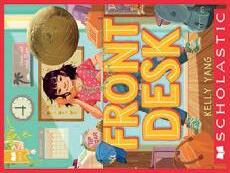
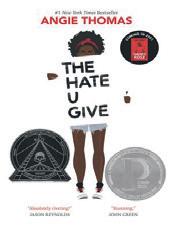








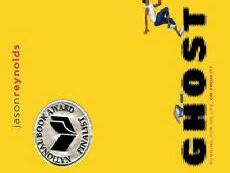

















A positive experience at one of the UK’s top private schools inspired Hugh Viney to set up a new online school during the pandemic.
By Irena Barker
As a scholarship student at Stowe School, edupreneur Hugh Viney grabbed school life by the horns. Joining the choir, playing rugby and appearing in plays, he also loved learning and felt “very lucky and grateful” to be there.
Passionate about classics (he now has a degree in the subject from UCL) he was the only student in his year studying ancient Greek and he enjoyed one-on-one lessons with an “inspirational” classics teacher, Mark Edwards.



Incredibly, Viney recently employed Edwards – who had gone on to become deputy head of The Dragon School – as the head of middle school at Minerva’s Virtual Academy (MVA), the online school Viney established during the pandemic.
It’s an indication of how the public perception of online schooling has changed since 2020 that teachers and leaders from the nation’s top schools are signing up to work in them.
All the more important, perhaps, has been how parents have responded to the new school which Viney set up amid huge demand for his existing tutoring business, Minerva Tutors, during the pandemic.
“Some kids were happier in Covid doing online learning so the parents had this awakening,” says Viney, who gave up a career in the music business to work in the private
tutoring world after university.
“Parents were saying: ‘I don’t want my child to go back to the school they hated. They’ve been enjoying homeschooling so much.’”
By late November 2020 the new school had four students signed up, and numbers swelled to 16 by January 2021.
Three years later, Minerva’s is thought to be the fastest growing private secondary school in the country, with 725 full-time pupils. It is expected to grow to 1000 pupils by the end of the year.

The school has 95 academic staff (60 full-time equivalent) and 22 staff at headquarters in London taking care of marketing, admissions, operations and finance.
Parents pay £7,645 per year for a relatively affordable model where pupils attend online lessons in classes of up to 22 for 40 per cent of the time, with 60 per cent selfdirected learning.
Learning is “flipped”, so
expected to prepare for lessons by watching videos and reading texts, so the live lessons can be devoted to questions and discussions.
Like a host of other providers set up in recent years, MVA is benefiting from a growing consensus that online learning needn’t be second best.
Much of the demand can be put down to the crisis in teenage mental health, something Viney blames
“Viney is keen that his online school still incorporates the key elements of traditional schooling.”
squarely on social media and related activities.
“The rise of social media is almost the direct cause of the mental health crisis for teenagers, particularly anxiety,” he says.
Around half of students at Minerva’s have mental health issues, but it is by no means just for the anxious or depressed. Around 20 per cent of students are neurodivergent or have SEN, for example.
“They love our model because they don’t get distracted by loud noisy classrooms. [They can] sit and focus and accelerate their learning if they like,” says Viney.
The school also caters for 120 elite athletes who find it fits around their training and competitions and there are “lifestyle” families who have F
chosen to lead lives that would be incompatible with attending a school building each day.
There are even some young entrepreneurs attending the school to gain sixth form qualifications at the same time as running their businesses.
Viney is careful not to denigrate online competitors or mainstream schools who take a different pedagogical approach and concedes that the asynchronous model is not for everyone.
“The usual reason for people dropping out is there’s too much self-directed learning, and they might go to some of our competitors who literally have eight hours of Zoom lessons,” he says.
With his own happy memories of school life at Stowe, Viney is keen that his online school still incorporates the key elements of traditional schooling.
He says: “It means assembly on a Monday morning. It
“Parents were saying they didn’t want their child to go back to the school they hated.”
means pastoral care. It means one-on-one mentoring. It means clubs and societies –all this good stuff.”
There are even now twice-termly school trips to destinations such as Oxford and Bath, with the focus on both educational and social opportunities. “That’s only going to grow – we’ll do four a term next year. It’s seen by many kids and parents as a huge USP for the school,” says Viney.
The school is also blazing a trail in exams: it is one of the first schools to be accredited by Pearson to offer them online. A total of 100 Year 11s this year will be taking all their GCSEs from home as part of a pilot project.
Viney says he feels “quietly confident” about the arrangements, underlining that the school has a fulltime exams officer to ensure everything runs smoothly.
In terms of the future, MVA is planning to introduce a section that runs to an Asian time zone, to capture more of the international market and offer online sixth form subjects in existing international schools.
Currently, 70 per cent of students are from the UK, although there are students studying in more than 50 countries.
A new headteacher, Suzanne Lindley, has been appointed (promoted internally from her role as deputy head pastoral)
as the school grows, although founding head Lawrence Tubb has now taken an advisory role.
The school is also currently in the process of gaining Ofsted accreditation but is still officially classed as a homeschooling business.
This has not stopped a number of local authorities sending pupils their way, and some leading schools that Viney has good relationships with. Many of his teachers from Stowe are now headteachers around the UK.
He says: “We have some nice relationships with private schools, they don’t see us as a threat, they see us an awesome solution for a child who’s struggling with their system.”






Engaging students in reading is a common challenge for educators, yet fostering a love for reading can positively impact students’ emotional wellbeing. In our digitally driven educational landscape, alternative digital reading formats such as audiobooks, comic books, and magazines can play a crucial role in helping to overcome this challenge, especially among reluctant readers.
The Emotional Benefits of Reading
Numerous studies have highlighted the positive impact of reading on emotional wellbeing. Reading can serve as a powerful tool for stress reduction, empathy building, and emotional regulation. Additionally, when students


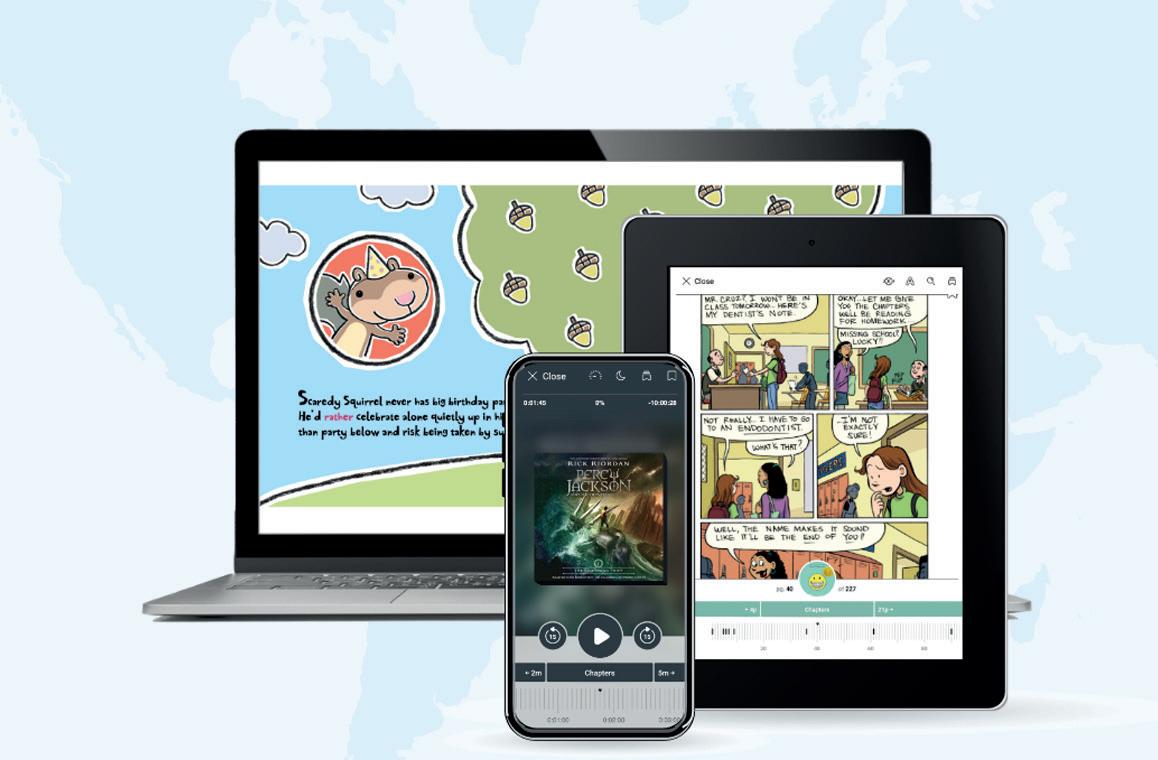

improve and ultimately selfconfidence as well.
Reading often allows students to develop a deeper understanding of different perspectives and emotions, which can translate into better interpersonal relationships and emotional intelligence. To maximise these benefits, it’s essential to meet students where they are and cater to their interests and needs.
Digital reading formats like audiobooks, comic books, and magazines can be instrumental in making reading more accessible and enjoyable.
Audiobooks: For the nontraditional reader
Audiobooks are a popular option for students who may struggle with traditional reading formats. For students
and less frustrating way to enjoy literature. They also allow for multitasking, enabling students to listen to books while commuting, exercising, or relaxing. This format gives secondary school students more opportunity in their busy schedules to read on the go. Often, narration can be expressive and enhance the emotional experience of the story, making it more engaging.
Comic Books: For the visual learner
them, from science and technology to fashion and sports. Students are more likely to engage with content that reflects their interests outside the classroom. Magazines also introduce students to nonfiction reading on often timely and relevant topics in the world. Magazine usage in the classroom is a great way for educators to engage students, with so many current event topics featured in always updated digital issues.
Incorporating Digital: For every student



Comic books and graphic novels offer a visually stimulating alternative to traditional books. These formats can be particularly appealing to reluctant readers, providing a gateway to more extended reading. The combination of visual art and text helps maintain interest and can be less intimidating for students who find dense text overwhelming. Many comic books are part of a series, which encourages students to keep reading once they’ve finished one





An easy way to offer these formats is through digital reading platforms, like Sora. Sora is used by more than 59,000 schools throughout the world to provide a seamless reading experience on devices students use every day. Ebooks, audiobooks, magazines and comics are all available in hundreds of languages and across thousands of topics to ensure your school has the unique catalogue your students need.










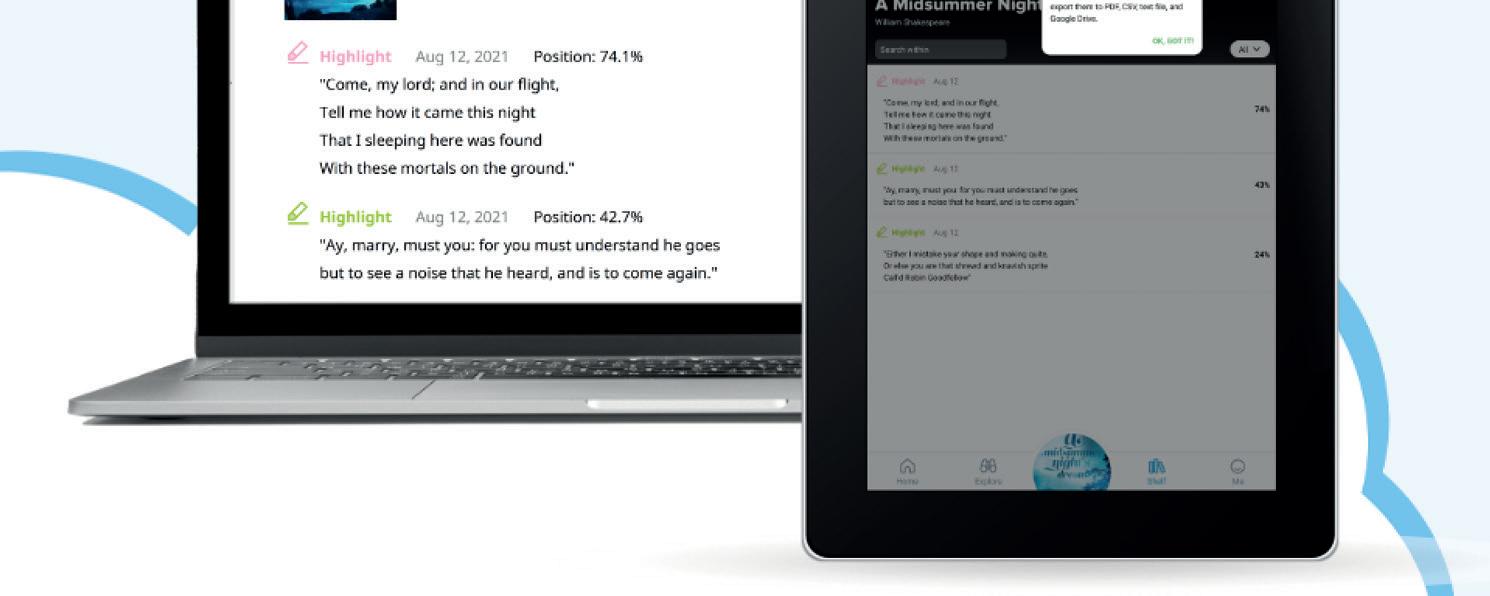
For the subject matter experts





Magazines offer students the opportunity to explore topics that genuinely interest book.


Interested in learning more about alternative formats for reading engagement and wellbeing? Try out Sora at overdrive.com/ discoversora/global
Luke Ramsden explores how schools can support students to develop resilience on their own terms
Fostering student wellbeing and resilience should be a top priority for all schools. In a postpandemic world, where mental health challenges persist and resources are stretched thin, empowering students to care for themselves is crucial.
By adopting proactive strategies, schools can cultivate a generation of resilient, self-aware, and compassionate individuals. Here are five key ideas to consider:
1
Educate students on pastoral processes
Transparency and openness about pastoral procedures can empower students and encourage disclosure of concerns. Demystifying the referral process, explaining the roles of different agencies, and outlining internal disciplinary protocols help alleviate fears and stigma. When students understand that interventions are designed to protect rather than punish, they become
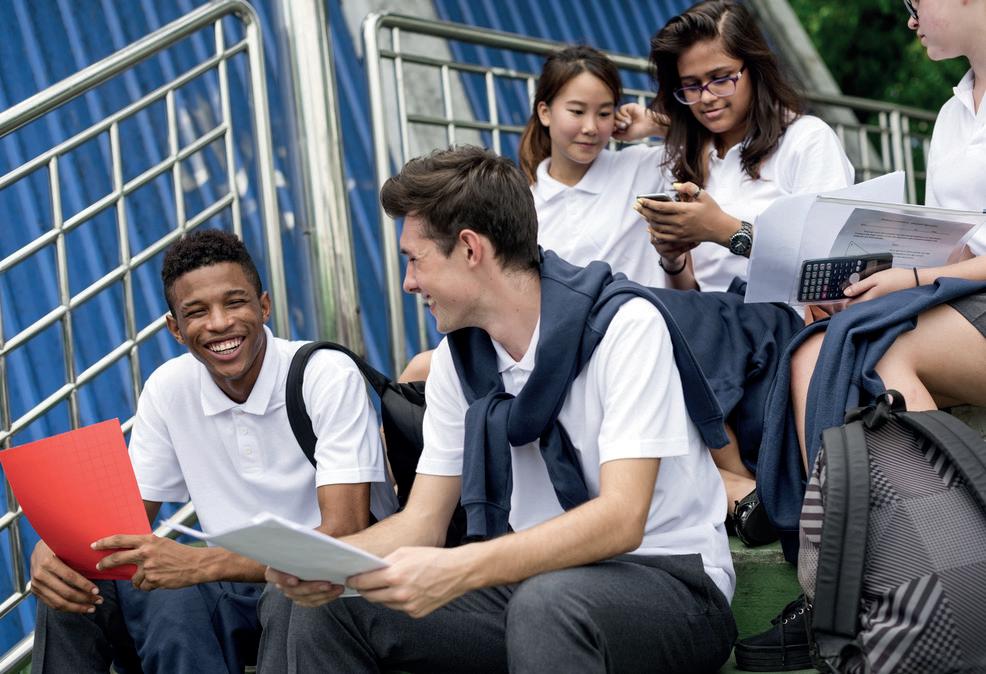

more confident in seeking support. Additionally, providing insights into the school’s approach to bullying incidents can dispel misconceptions and reassure students of thoughtful responses.
2
Integrate mental health literacy into the PSHE Curriculum
Equipping students with mental health literacy through the PSHE curriculum is invaluable. Teaching active listening, crisis de-escalation, and guidance on seeking professional help enables young people to support struggling friends, family members, and even themselves.
Comprehensive relationship and sex education, addressing topics such as healthy relationships, consent, and identities, empowers students to make informed choices about their sexual health. Other essential life skills, such as financial literacy, media literacy, and time management, also contribute to self-regulation and resilience.
3 Establish student mentorship programmes
Implementing a mentorship program where older students guide and support younger ones can be of great mutual benefit. For younger pupils, having a relatable role model close in age fosters a sense of belonging and confidence. They gain someone to turn to for advice on social situations, school expectations, and personal problems. At the same time, older mentors develop leadership abilities, compassion, and a sense of responsibility. With appropriate training on listening skills and reporting concerns, mentors can positively influence impressionable younger students while reinforcing their own good habits.
4
Leverage technology thoughtfully
Embracing technology can provide valuable avenues for supporting student mental health and pastoral care. Online reporting platforms allow students to discreetly report safeguarding, wellbeing, or bullying concerns, including the option for anonymous reporting. These platforms enable schools to analyze patterns and trends, informing targeted interventions. Additionally, mental health apps offer relaxation techniques, coping strategies, self-assessment tools, and direct access to support services, acting as vital crisis response resources.
5
Foster a culture of trust and inclusivity
Creating an environment where students feel heard, valued, and empowered is paramount. The Children’s Commissioner’s recent “The Big Ambition” report based on pupil views from across the country highlights a concerning trust deficit, with only 22 per cent of children believing those in charge listen to their views. Schools need to actively address this by involving students in decision-making processes,
“Implement a mentorship program where older students guide and support younger ones.”
seeking their feedback, and demonstrating a willingness to act upon their perspectives. Inclusive practices that amplify the voices of all students, including those with SEND, will nurture a sense of belonging and resilience.
Fostering student wellbeing and resilience should be seen not just as a nice extra idea but a necessary and central part of school life. By implementing the right strategies, schools can empower young people to navigate their life in school and beyond, with confidence and resilience. As the Children’s Commissioner’s report states, the key question for all school leaders to be asking is: “how can we transform the doubts and fears of our young people into something more confident?”. ◆
Technology allowing specialists to reach many more students is forcing us to rethink the best model for secondary education, writes Mark Steed

Ahybrid school combines online personalised learning and remote whole-class teaching with attendance at a traditional “bricksand-mortar” school which has teaching, learning, and social spaces.
There are many reasons why these will become more widespread over the next two decades which I will explore below. But first, some context:
Thinking the unthinkable
The traditional UK model for secondary schooling sees a teacher standing up in front of a class of 20 to 30 students delivering a lesson which typically might be 40 or 60 minutes depending on the school’s timetable structure.
Teachers are generally specialists in the
subject they teach, often with at least a bachelor’s degree in the relevant subject. They have also completed a period of professional teacher training either on a university course or on-the-job.
Thus, in a given week a Key Stage 3 student (aged 11-14) would typically study 17 to 20 subjects, taught by a teacher who has both expertise and experience of teaching that subject.
This model is increasingly under pressure because it is highly labour-intensive and expensive. It is becoming unsustainable to be delivered at scale. The time has come to explore alternatives to the traditional western model of secondary schooling.
Discussing schooling from a business class perspective
Seen from a global perspective, the traditional organisation of UK schooling is a premium model of education. Faceto-face teaching taught by a relevantly qualified specialist teacher is the schooling equivalent of flying in Business Class.
One of the challenges when opening up the debate in the UK about how we might educate students is that educationalists, politicians and the wider population all approach the issue from the perspective of having flown business class all of their lives. Like those accustomed to the luxury and service of sitting up front, they struggle with the concept of the stripped away economy of a budget alternative.
Everyone in the debate has grown up with the idea of a teacher standing up in
There needs to be an element of in-person, in-school learning as part of a hybrid school.
front of a class, and it is almost unthinkable to consider any other alternatives. But they exist. In these the variables are class size, the quality and qualifications, the experience of the teachers, the range of subject choice and extra-curricular activities that are available, the quality of the facilities, and so on.
Two examples:
Schools for students where mainstream doesn’t work: Dukes Education has just announced that it is opening a hybrid school “designed for school refusers, those with anxiety or those whose parents feel there are no suitable local schools, and students who want to fit their education around sporting or other extracurricular commitments”. This is very much a new-market foothold supporting students and parents.
Minority option subjects
Independent schools in the UK have long prided themselves in having an extensive range of GCSE and A-levels on offer. However, as tastes change many schools, looking at their cost base, find themselves carrying subjects which are a financial burden. German, Ancient Greek and Latin A-level are rarely viable in schools. Some are looking to continue offering these through hybrid education where students are taught within the school timetable by remote tutors who not only teach, but also write reports and participate in parent-teacher meetings. For an example take a look at Keystone Tutors.
Why hybrid is likely to take off:
There are many reasons why this model will ultimately take off: The development of AI-driven personalised learning systems will
provide better learning than is possible in a classroom. Contrary to educational lore, class teaching is not the most effective form of education – it is one-to-one tutoring as Bloom’s research indicates.
In ten years’ time there is a realistic prospect of personalised learning systems which will be able to provide better insights into an individual student’s learning progress than is possible for any teacher today.
These learning systems by then will have a “face” – with the learner being able to choose their teacher’s avatar (so the prospect of Taylor Swift giving a one-toone mathematics tutorial).
Individualised learning of this nature will play an important part in students’ learning journey.
The lessons of home learning for those of us in well-resourced schools was that most of the academic elements could be covered well remotely. It was the practical, social and pastoral areas that suffered most. That is why I believe that there needs to be an element of in-person, inschool learning as part of a hybrid school.
Indeed these are the areas on which
school designers should focus their efforts.
Hybrid teaching maximises the scarce teaching resource of specialist teachers in shortage subjects. Schools across the UK are struggling to provide specialist teachers for their classes, with the percentage of lessons delivered by teachers with a relevant degree, or even relevant teacher training, reducing annually.
Moving to an online class teaching model means that schools can make the most of the specialist teachers that they have. A UK academy trust is already running a pilot so that one teacher can teach three classes of up 30 students at the same time from a central broadcasting classroom, supervised in their classrooms by non-specialists.
In my opinion, this model of in-school remote teaching does not go far enough. It misses one of the major advantages of remote teaching, namely that teachers and students do not have to be in the same physical space.
Hybrid schools can respond to the teacher recruitment crisis and societal changes to working patterns post-Covid. WFH has become the norm for many professionals but teachers have been stuck in inflexible working arrangements.
A hybrid school can offer more flexible working, with teachers on contracts that combine work in school and at home.
Bricks and mortar schools will be different from the current design.
Schools will be places where students come together to
learn practical subjects which require specialist spaces, to check in with their tutors; to socialise and to study (particularly individual study online).
School buildings will reflect this purpose and will focus on these areas: personalised study spaces, specialist practical teaching spaces, counselling spaces and social spaces. Hybrid schools will not have to have any “standard classrooms” because subjects that are taught in classrooms translate very effectively to online teaching.
Anticipated objections:
I am quite aware that many educationalists, looking back down the gangway from business class, are likely to raise some objections to this model.
“This won’t work for primary!” I agree. This is a model designed for secondary schooling. Secondary students are at an age where their online study skills should be at a level where they can access their own learning. This is not the case with younger children.
“What about students who don’t want to learn?”
Students in a hybrid school will need to be monitored. One of the key roles that this new model will develop, is the academic tutor who will have an overview of the student’s progress and will play an important part in motivating the student. There is always the option for students who don’t want to learn to be required to study in school.
“Not all students have a home environment where they can study”
This is undoubtedly true. Hybrid schools will need to provide personalised study spaces where individual students can access online learning. This is an essential part of school design. They do not however need to be in classrooms or even formal areas. Students should be given the opportunity to study in whatever environment works for them. ◆
Mark Steed is a consultant and director of Steed Education, a consultancy supporting school leaders. Previously he was a school principal for 22 years, running independent schools in Devon and Hertfordshire, and international schools in Dubai and Hong Kong.















































































































































































STANDARD LISTING
45,000+ independent & international professionals
15,000 social media reach accross six channels
Included in weekly jobs newsletter



















































Standard listing PLUS
Featured listing at the top of the Careers Section
Advertising alongside relevant content throughout the site
ATTRACT THE BEST STAFF WITH THE LEADING DIGITAL PLATFORM FOR INDEPENDENT AND INTERNATIONAL SCHOOL PROFESSIONALS WORLDWIDE
School Management Plus is the leading print, digital and social content platform, for leaders, educators and professionals within the independent and international education sector worldwide.
Our readership spans every stakeholder within fee paying education worldwide from Heads, Governors, Bursars, Admissions, Marketing, Development, Fundraising and Educators – to catering, facilities and sports. Our jobs & careers center is the natural meeting point for those already in the sector, aspiring to join it, or hiring from within it.































Featured listing PLUS









Free listing if the vacancy is not filled
Included on magazine digital distribution to 150,000 readers
Included in school directory
Listing experience hosted on Kampus24




























Premium listing PLUS
Unlimited job listings throughout the year to our audience
Newsletter presence every month for your school
Exposure and features on your school in main careers section
Print adverts for your listings each term
Listing experience hosted on Kampus24
The rst 100 schools to sign up will receive 20% o a year’s unlimited package
• Social following of 15k across 6 channels
• 60% annual growth in web tra c
• Core readership of Heads, Senior Leaders, Heads of Department, Bursars and Finance managers, Marketing and Admissions, and Development across the sector



“It’s
Dr Steffen Sommer, director general of Misk Schools, explains what attracted him to working in schools in the Middle East
Having grown up in Eastern Europe in a multicultural, multilingual family, I learned early on the value of embracing different cultures and perspectives.
Indeed, it is probably this background that has been behind my academic and professional journey which has been marked by a passion for languages and cultural discovery.
Education was a cornerstone of my family’s values. I was always surrounded by books and encouraged to explore the world through learning. Barriers did not seem to exist. In our home, we believed that with determination and dedication, almost anything can be achieved.
I think this is partly what enticed me to the Middle East – a region where leaders think big and set the most audacious of goals for themselves and their nations.
Initially drawn to Qatar from Europe in 2015, I am now rooted in Saudi Arabia, where, for the past eighteen months, I have found myself immersed in an environment of infectious ambition and expansive thinking. As a firm believer in high performance for all, the Saudi mindset resonates with me.
momentum that can be overwhelming if not managed. One must adapt quickly to keep pace with the flow of ideas, opportunities and rapid change evident in all domains including education, which is thriving.
The number of new, international schools opening in the Kingdom is significant, with the K-12 sector projected to expand at a compound annual growth rate of 12 per cent from 2019 to 2028,.
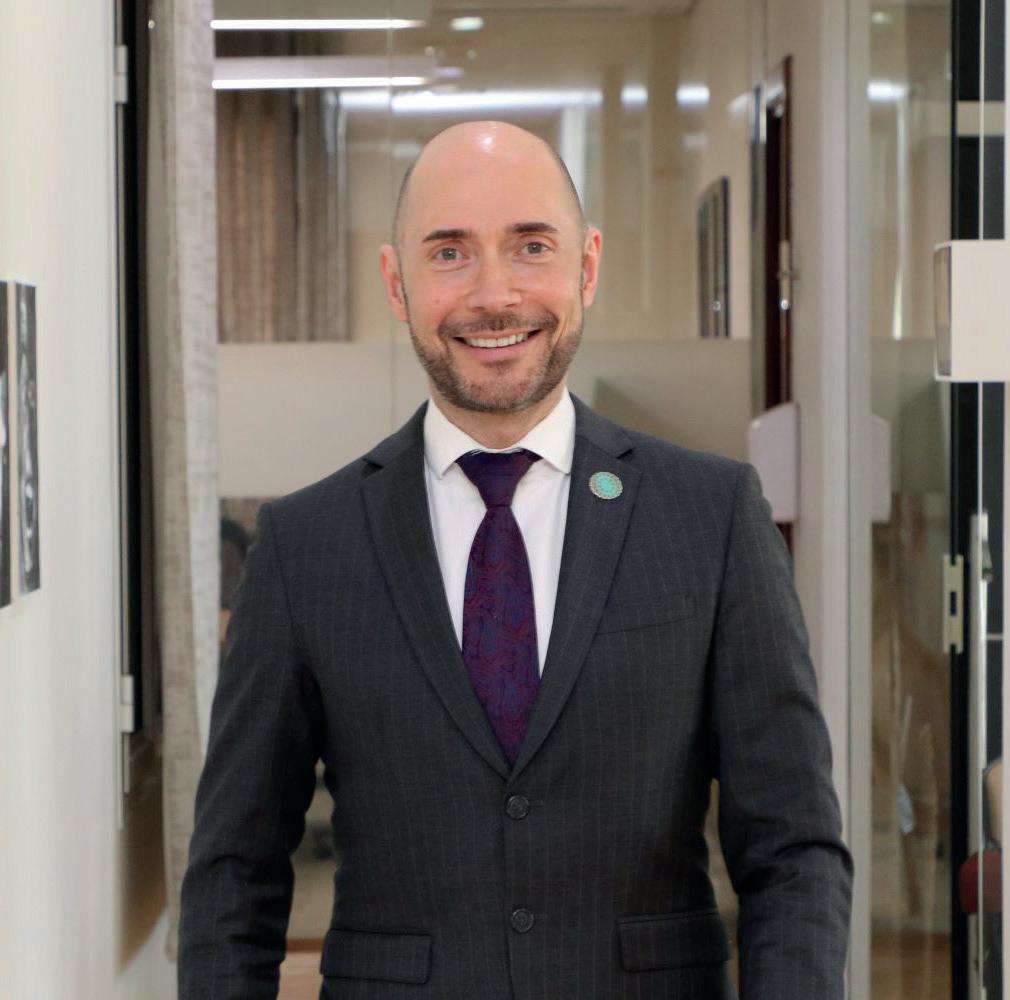
This is driven by the government’s strategic objective of raising private school enrolment to 25 per cent by 2030 and bolstered by its 2017 decision to allow 100 per cent foreign ownership and investment in the private education market.
Misk Schools was founded by HRH Mohammed bin Salman in 2016, and his mandate for us is clear: nurture the next generation of leaders prepared to take their place on both Saudi and global platforms.
I hold that every student who has the good fortune to have access to a quality education (and is free from learning disability) has the inherent potential and capacity to excel academically and achieve notable accomplishments.
Saudi leadership holds that there are no limits to what the Kingdom can achieve.
It’s easy to see how my role at Misk Schools represents a meeting of minds.
I can compare living and working in Riyadh to boarding a moving train. Life here is fast. There is a
With this as context, I have worked to build on the foundations laid by my predecessors. Together with my team and our partners, we have introduced High Performance Learning (HPL) for the first time in the Kingdom, interpreting and recreating its language and concepts so that Arabicspeaking students, staff and parents can connect with it as deeply as English language speakers.
Grounded in research and pedagogical principles, HPL is a philosophy that addresses our evolving comprehension of human potential. It establishes high performance as the norm for all students, employing a distinct teaching and learning framework to methodically cultivate the cognitive skills, values, attitudes, and attributes essential for lifelong success. It helps good schools become world class, which is of particular note here, given Saudi Arabia’s Vision 2030 goals for education. F
One must adapt quickly to keep pace with the flow of ideas.
We have also taken HPL a step further through a partnership with Professor David Alworth and his team at Gemic, experts in critical thinking, as well as the UK’s Inspirational Development Group, leadership education specialists.
Leadership is a multifaceted concept, encompassing a dynamic interplay of skills, knowledge, and behaviours. Given its complexity, the most effective approach to teaching leadership in schools is to seamlessly weave it into established teaching frameworks and pedagogical methods.
In what we believe to be a unique approach, we have developed a leadership curriculum that has been fully integrated with HPL and the Cambridge International pathway students follow with us, designed to help them to become unconsciously aware of practising leadership in everything that they do.
The potential of this new curriculum has been embraced locally and internationally. Dr Hibah Khalid Aladasani, assistant professor in the school of education at King Faisal University, has been working with Dr Kay Sanderson, to provide a grounded critique that contributes to its evolution, and helps prepare it for sharing with other educational establishments in Saudi and further afield.
Integrating the latest research on critical thinking into the HPL paradigm has allowed our students to approach their daily learning with an inquisitive and interrogative mindset.
My journey to the Middle East began with a sense of cultural curiosity and a desire to be part of something transformative.
For now, I can’t imagine a more compelling opportunity anywhere else in the world. Living and working in a pioneering and ambitious market, where ideas are embraced and possibilities are endless, is quite simply exhilarating. ◆
Dr Steffen Sommer is director general of Misk Schools in Riyadh.

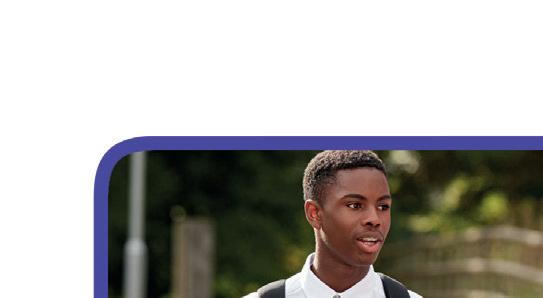
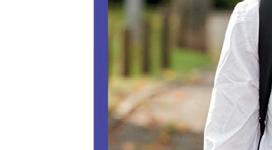


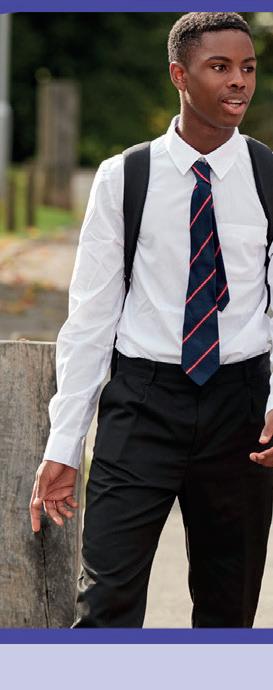


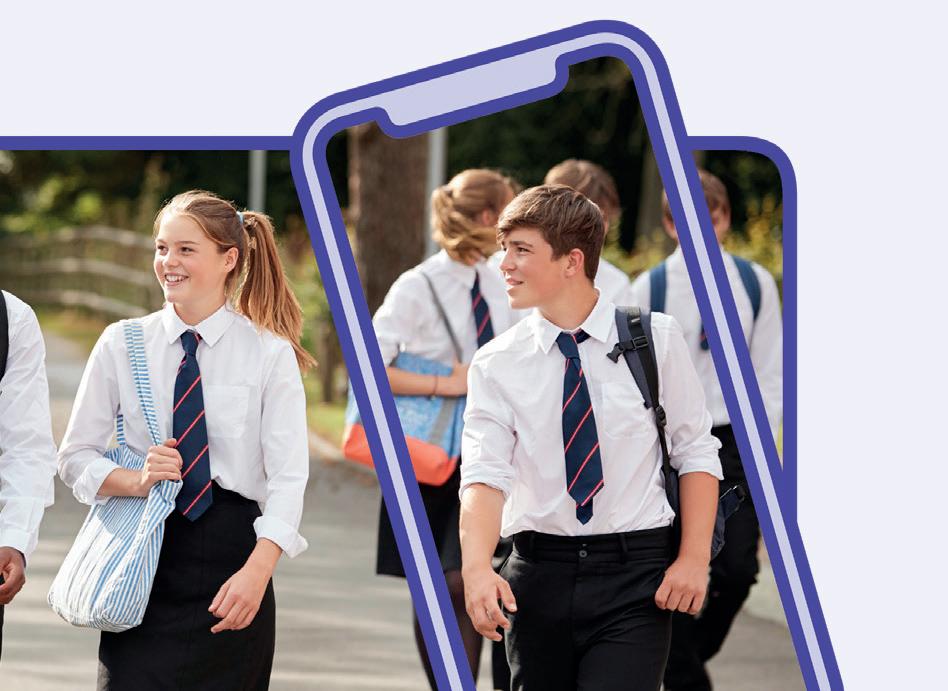

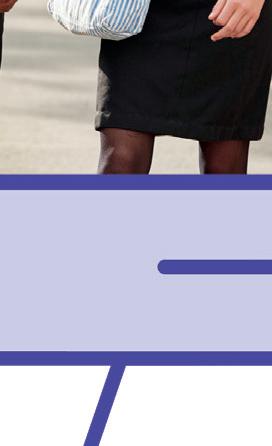


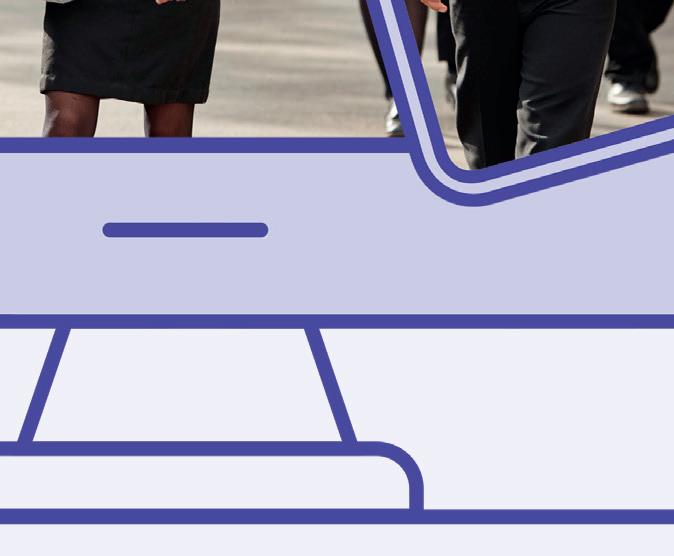


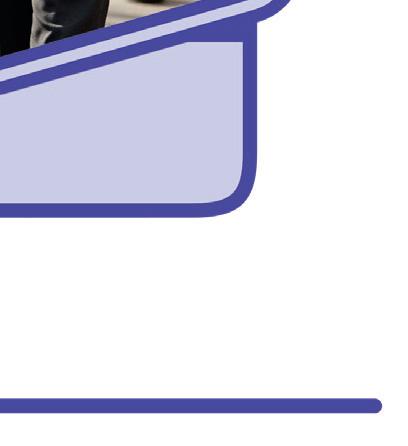
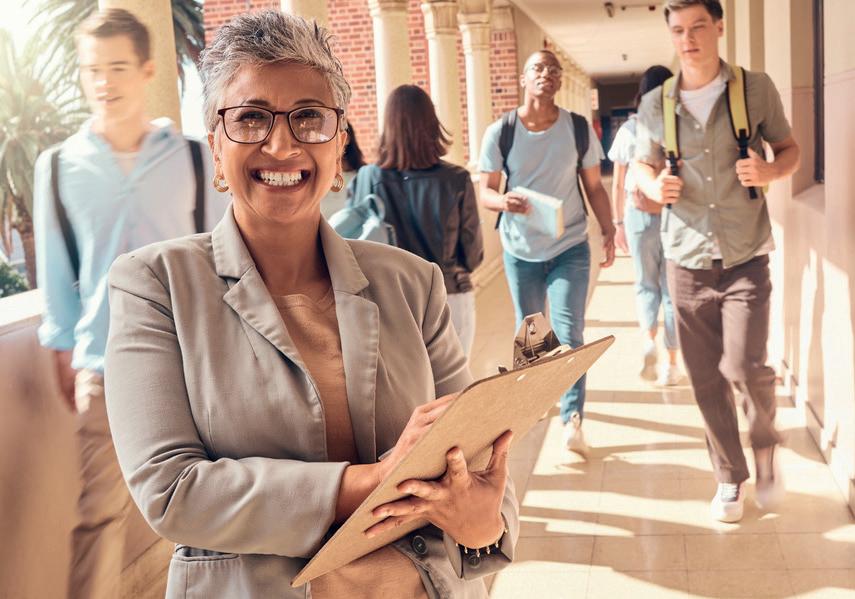
Dr Wayne Russell examines what job satisfaction means for international school leaders, and why it is important
Are you a head of school with divisional principals reporting to you? Are you a school board member or an international school owner? In these roles, what are your priorities? Delivering a high-quality academic programme, hiring highly-qualified and experienced teachers or maybe building state-of-the-art facilities?
Although these are important priorities, I propose we pay greater attention to the job satisfaction of the principals heading up different sections of your school. Why?
My research shows that a school leader’s job satisfaction is strongly associated with an international school’s performance. A school’s performance with a principal with lower job satisfaction is worse than with a principal with higher job satisfaction. Satisfied principals also tend to cultivate satisfied teachers. Satisfied teachers and school leaders stay longer at a school. Therefore, recruitment, onboarding, and training costs are lessened.
Job satisfaction is an affective orientation towards one’s work. It can also be an attitude, an internal state, and a feeling an employee has about their work. Job satisfaction can represent the extent to which workplace expectations are met. Psychologist Edwin Locke’s definition of job satisfaction is commonly used in organizational research. Locke described job satisfaction as a pleasurable or
positive emotional state resulting from the appraisal of one’s job or job experiences. There are several factors that influence job satisfaction. Salary, benefits and an organization’s job promotion system will have an impact. Leadership quality, management styles, and supervision can also affect it.
A few studies in recent years relate to job satisfaction within the international school context. Most studies focused on teachers. One study looked at IB-MYP coordinators in international schools. One of my studies measured the job satisfaction of international school principals.
Consider measuring the job satisfaction of your principals three times a year so you can track changes over time. You can measure it at the beginning, middle and end of the year. Here is a simple tool you can use to measure job satisfaction.
Think of your job in general. All in all, what is it like most of the time? Besides each word or phrase below, select:
“Yes” if it describes your job
“No” if it does not describe it “?” if you cannot decide.
Good • Undesirable • Better than most • Displeasing • Makes me content • Excellent • Enjoyable • Poor
A “yes” response is worth three points, a “no” response is worth 0 points, and a “?” is 1 point. You need to reverse score the negatively worded items (“undesirable”, “displeasing”, “poor”). So, if someone
chooses “yes” for “undesirable”, change it from 3 points to 0 points. Then, add up the eight scores for an overall job satisfaction score. If you have three principals who completed the survey, calculate the average score.
To increase the job satisfaction of your principals, you could try:
• Offering a more competitive compensation and benefit package
• Providing opportunities for growth and development
• Fostering a positive and collaborative work environment
• Encouraging work-life balance
• Recognizing and rewarding achievements
• Increasing autonomy and empowerment
As you pursue your priorities as a head of school, school board member, or school owner, I hope you choose to pay greater attention to the job satisfaction of your principals.
If you have any questions about measuring and improving the job satisfaction of your principals, contact Wayne through LinkedIn or email waynoza@icloud.com ◆
Dr Wayne Russell: Over the past 20 years as an international educator, Wayne has been a principal at three schools in China. His PhD focused on leadership styles, employee satisfaction, and the organizational performance of international schools in China and the United Arab Emirates.